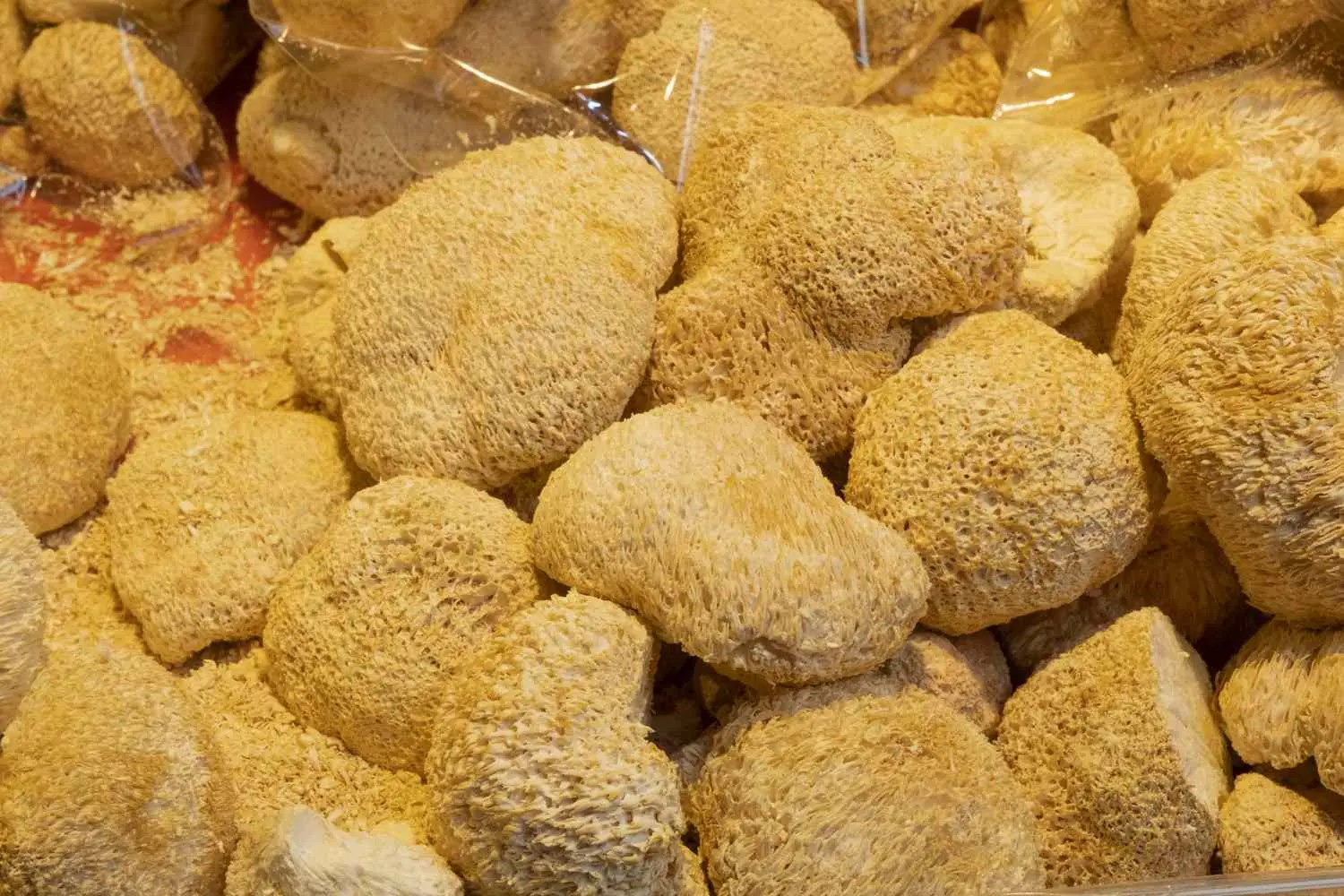Smoked lion's mane, also known as Hericium erinaceus, is a type of edible mushroom from the tooth fungus family that grows on woody tree trunks. This mushroom gets its name from its large and shaggy appearance. It has a long history of use and is particularly popular in Asian countries due to its numerous nutritional and health benefits.

Health Benefits of Smoked Lion's Mane
Smoked lion's mane offers several potential health benefits, including:
Protection Against Dementia
Studies have shown that lion's mane mushroom contains plant compounds called hericenones and erinacines, which have neuroprotective properties. These compounds can stimulate the growth of new brain cells and protect against neurodegeneration associated with diseases like Alzheimer's and Parkinson's. While more research is needed to fully understand the potential of lion's mane for neurodegenerative diseases in humans, it shows promising results.
Relief from Depression Symptoms
Lion's mane mushroom has been suggested as a potential alternative treatment for depression. Some studies on mice have shown positive results, but clinical studies on humans are limited. One study focused on lion's mane's potential for reducing depression symptoms related to menopause. After taking a lion's mane extract daily for eight weeks, participants experienced a reduction in depression symptoms, including sleep issues. However, more research is needed to determine its effectiveness in treating depression in the general population.
Quickened Nerve Cell Recovery
Lion's mane is known for its regenerative capabilities, particularly in promoting faster recovery of nerve cells after injury. It is one of the few medicinal mushrooms recognized for its impact on nerve cell growth and health. However, most of the research on lion's mane's effects is based on animal studies, and more human studies are needed to validate these findings.
Protection Against Stomach Ulcers
Lion's mane has a long history of use in traditional Chinese medicine for treating digestive diseases. It has shown potential in fighting stomach ulcers caused by bacteria or long-term use of certain medications. Studies on mice have demonstrated its ability to combat ulcers after three weeks of use. However, further research is necessary to confirm its effectiveness in humans.
Reduction of Inflammation
Lion's mane has consistently shown potential in reducing inflammation, which can contribute to chronic diseases. Studies on mice with ulcerative colitis have demonstrated its anti-inflammatory effects. Another study suggests that lion's mane extract can combat liver inflammation caused by excessive alcohol consumption. These findings indicate the potential of lion's mane in managing inflammation-related conditions.
Support for the Immune System
Lion's mane promotes better gut health, which in turn supports the immune system. Animal studies have shown that it stimulates the intestinal immune system and regulates gut bacteria. A healthy gut can effectively fight bacteria and pathogens that may enter the body through the nose or mouth. Additionally, lion's mane contains antioxidants that further enhance immune system function.
How to Supplement with Smoked Lion's Mane
There are various ways to incorporate smoked lion's mane into your diet. You can find fresh and dried lion's mane mushrooms, as well as lion's mane extracts, in supplement stores and online. Lion's mane is often included in mushroom mixes or blends of medicinal mushrooms like reishi and chaga.
Here are some common forms of smoked lion's mane supplements:
- Tea: Lion's mane tea is available in loose leaf, powder, or bag form.
- Capsules: Lion's mane capsules or tablets are often marketed for enhancing focus.
- Coffee: Lion's mane can be used as an alternative to coffee due to its stimulating effects.
- Powder: Lion's mane supplement powders can be added to smoothies or juices.
- Tinctures: Tinctures are highly concentrated plant extracts made through alcohol extraction.
It's important to consult with your healthcare provider for specific dosage recommendations. Lion's mane supplementation guidelines are not standardized, and the recommended dose may vary depending on your purpose, desired effects, and overall health.
Describing the Effects of Smoked Lion's Mane
Smoked lion's mane is not psychoactive, meaning it does not have any intoxicating effects. However, it is often marketed for its potential to increase focus and reduce feelings of depression. It is important to note that more research is needed to fully understand the effects of smoked lion's mane in humans.
Possible Side Effects of Smoked Lion's Mane
Smoked lion's mane supplements are generally considered safe and well-tolerated. However, there is a lack of research specifically on smoked lion's mane supplementation in humans, so its safety profile is not fully understood.
One case report mentioned an allergic reaction to lion's mane resulting in breathing problems. If you have a known allergy to mushrooms, it is advisable to avoid smoked lion's mane.
Additionally, if you are taking diabetes medication or blood thinners, it is important to exercise caution or avoid smoked lion's mane. Lion's mane may interact with these medications and affect blood clotting and blood sugar levels. Consult with your doctor before starting any new supplement regimen.
Who Cannot Take Smoked Lion's Mane?
While smoked lion's mane offers potential health benefits, there are certain individuals who should exercise caution or avoid its use:

- Individuals with known allergies to mushrooms
- Individuals taking diabetes medication or blood thinners
If you fall into any of these categories, it is advisable to consult with your healthcare provider before incorporating smoked lion's mane into your diet.
Summary
Smoked lion's mane is an edible mushroom that offers a range of potential health benefits. It may protect against dementia, relieve depression symptoms, aid in nerve cell recovery, reduce the risk of stomach ulcers, reduce inflammation, and support the immune system. However, most research on smoked lion's mane is limited and conducted on animals. Dosage recommendations are not standardized, and it is important to consult with your healthcare provider before starting any new supplement regimen.
While smoked lion's mane supplements are generally considered safe, individuals with mushroom allergies or those taking certain medications should exercise caution or avoid its use. Consulting with a healthcare provider is advisable if you are uncertain about incorporating smoked lion's mane into your diet.
What does lion's mane taste like?
Lion's mane mushrooms have a mild, seafood-like flavor. When smoked, they develop a smoky and earthy taste that adds depth to dishes.
Is lion's mane good for lungs?
There is limited research on the specific effects of lion's mane on lung health. However, its anti-inflammatory properties and potential to enhance overall immune function may indirectly support lung health. Further research is needed to establish a direct link between lion's mane and lung health benefits.
Can you feel the effects of lion's mane?
Smoked lion's mane is not psychoactive, so it does not have intoxicating effects. However, some individuals may experience increased focus and reduced feelings of depression when supplementing with lion's mane. More research is needed to fully understand its effects on individuals.
If you want to know other articles similar to Exploring the health benefits of smoked lion's mane mushroom you can visit the Mushrooms category.


Related Articles